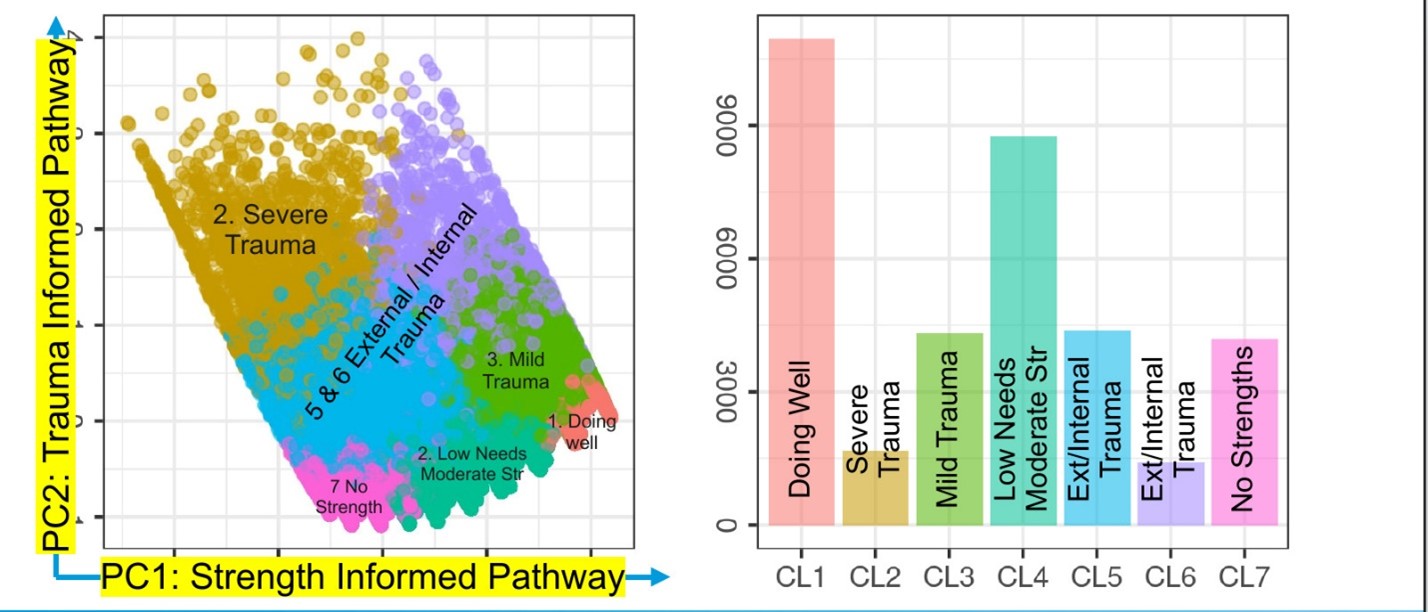The Precision Analytics team provides cutting-edge person-centered analytical support and translational science to state and local governments and other organizations invested in improving health outcomes for youth and families. Precision Analytics builds upon the idea of Precision Medicine, moving away from one-size-fits-all approaches to finding more precise solutions that consider a person’s specific needs and strengths as well as the context in which they are being helped. The team draws from a diverse set of disciplines within data science to address our most pressing societal challenges.
Precision Analytics & Reporting

The plot to the left shows a projection of similarities among CANS measurements in 2-d space. Colors represent different groups of children with distinct clinical needs that we obtained based on a Latent Class cluster analysis. The bar plot to the right shows sample allocations corresponding to each distinct cluster.
Led by Olga Vsevelozhskaya, Ph.D., the team includes Xiaoran Tong, Ph.D. and a group of Master prepared analysts, and three postdoctoral fellows (currently an Economist, a Political Scientist, and a Data Scientist). The Precision Analytics team excels in bridging the chasm between research and practice by engaging stakeholders, at all levels, in the analytic process. Working within the TCOM framework, we are evolving the concept of Continuous Quality Improvement into Continuous Learning and Adaptation. We believe that focusing on learning and adaptation naturally increases expertise within helping systems and places data squarely into practice management and policy development.
A portion of the work of Precision Analytics focuses on the creation of interactive dashboards and other forms of reporting; however, there are two other major thrusts to this work. The first emphasis is on the development, testing, and refinement of Decision Support Models developed from the TCOM tools. With our program expertise in Machine Learning and other Artificial Intelligence (AI) related analytic skills, we are evolving the nature of decision support from a person-centered perspective. The second emphasis is on the ad hoc analyses that evaluate programs and explore relationships between clinical and functional indicators, service utilization, and costs of care. We use distance properties of eigenvalue and vector methods to measure `distance’ among subjects based on various similarity coefficients to assign each individual to one of a set of predetermined groups and to derive a low-dimensional representation of the sample by using co-ordinate axes corresponding to only a few large latent roots. Reliable and comprehensive assessments of the needs and strengths of individuals and families served in our systems allow for a person-centered revolution from traditional approaches to service research.
Contact Research Program Manager
Analysis and reporting requests for Precision Analytics.